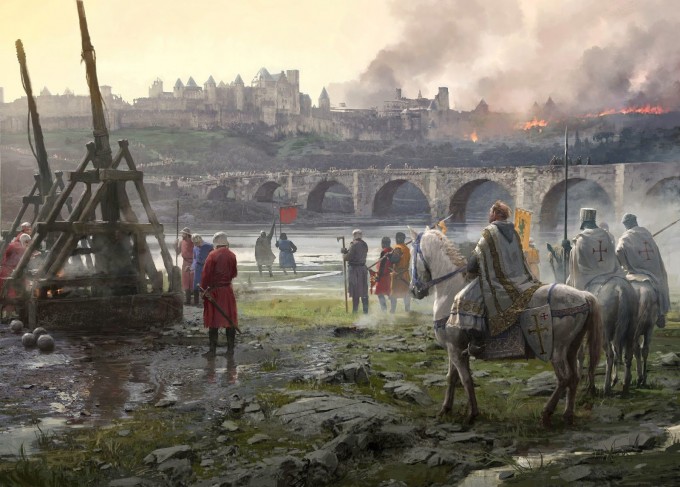Battle of Thames Valley

The {{{Type}}} of Thames Valley

Property "Type" (as page type) with input value "{{{Type}}}" contains invalid characters or is incomplete and therefore can cause unexpected results during a query or annotation process.
| {{{Type}}} | |
| Information | |
|---|---|
| Year: | 503 A.D. |
| Commander: | |
| Opponent: | |
| Outcome: | |
| Length of battle: | {{{Length}}}"{{{Length}}}" is not a number. turns |
| Battle size: | {{{Size}}} |
Description
King Aesc of Kent and King Aethelswith of Est Seaxe both march out with their armies. They stop and besiege London, one army on each side of the river. Duke Ulfius waits for reinforcements. A few volunteers from far and wide, motivated by various personal reasons, show up for his muster.
Ulfius decides to attack before the two armies can join up. He crosses at Windsor and marches toward London. Unknown to him, a small fleet of boats ferries the Kentsmen across the river at night. Ulfius is greatly outnumbered, and he hears that Saxon ships have sailed for Windsor to block his retreat. He fights a short battle, and then escapes with his army at night.
The Saxons besiege London, but although the Saxons normally don’t have siege equipment to break in, this time they do. They have hired Sir Helifer the Mercenary, who directs batteries and engineers, and even several mobs of desperate swordsmen to go up the ladders.
Sir Helifer negotiates with the mayor and guildsmen. One day the city opens its gates and out come the mayor and guildsmen, the bishop, and the harbormaster. They surrender the city to Sir Helifer and the Saxon lords, who thereupon enter and take possession of the city. The garrisons at both castles lock up tight. The city is not sacked. The mayor will administer the city and county, as before, but pay taxes to the king of Essex this year, and to the king of Kent next year, and back and forth thereafter.
Saxon warriors flood into the city to enjoy its luxuries.